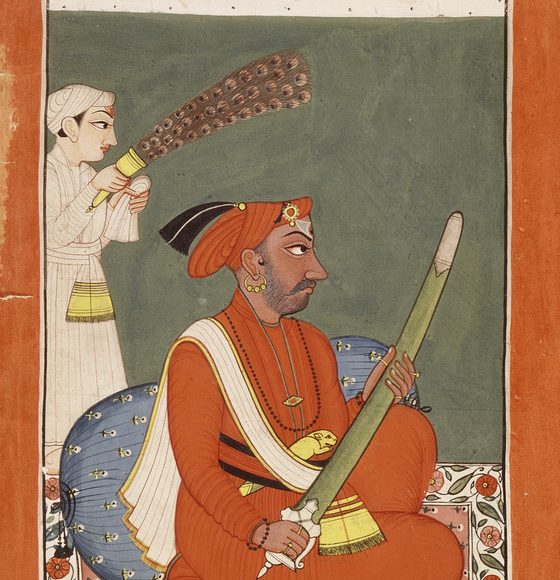SIDDHSEN, RAJA, chief of Mandi state in Himachal Pradesh from 1686 to 1729, became a devotee of Guru Gobind Singh. At his request the Guru went to Mandi and stayed with him for some time. The Raja later had the chance of playing host to Banda Singh Bahadur as well.
References :
1. Santokh Singh, Bhai, Sri Gur Pratap Suraj Granth. Amritsar, 1927-35
2. Gian Singh, Giani, Twarikh Guru Khalsa [Reprint]. Patiala, 1970
3. Ganda Singh, Life of Banda Singh Bahadur. Amritsar, 1935
Raja Siddhsen is remembered as one of the notable devotees of Guru Gobind Singh—a figure whose deep commitment not only to his spiritual beliefs but also to the evolving Sikh polity marks a fascinating confluence of faith and regional governance. As the chief of Mandi state in Himachal Pradesh from 1686 to 1729, he embraced the teachings of Guru Gobind Singh with such fervor that his court became a beacon of Sikh ideals in a tumultuous era. At his earnest request, Guru Gobind Singh himself visited Mandi and sojourned there for some time, an encounter that underscored the profound personal and political bond between the Guru and this visionary ruler .
Raja Siddhsen’s devotion went far beyond mere admiration. His active support created a sanctuary for Sikh thought and resistance at a time when the community was contending with the harsh realities of Mughal oppression and regional strife. This same spirit of commitment is seen later when he had the honor of hosting Banda Singh Bahadur, whose own campaign against imperial tyranny became a pivotal moment in Sikh history. In providing a hospitable environment that supported such transformative leaders, Raja Siddhsen’s legacy encapsulates the intimate interplay between spiritual belief and the practical demands of governance—demonstrating how regional powers could foster an environment where the seeds of Sikh martial resurgence were nurtured .
His story invites reflection on how the personal piety of a ruler can translate into broader political and cultural influence. Raja Siddhsen is often celebrated in Sikh hagiographies like the Sri Gur Pratap Suraj Granth and Twarikh Guru Khalsa, texts that illustrate how local devotion and administrative acumen can significantly contribute to the shaping of a community’s identity. Through his gracious and politically astute patronage, the ideals of equality, courage, and resilience found a potent expression, leaving an enduring mark on the collective memory of the Sikh tradition.



